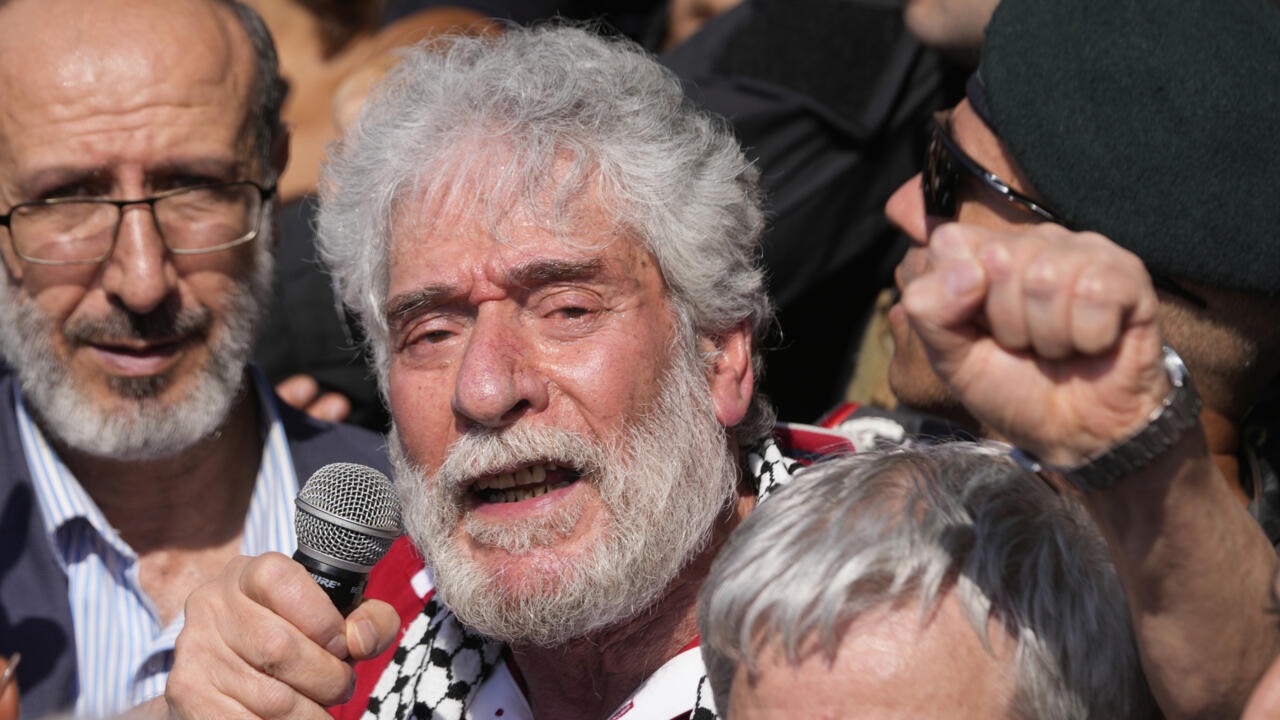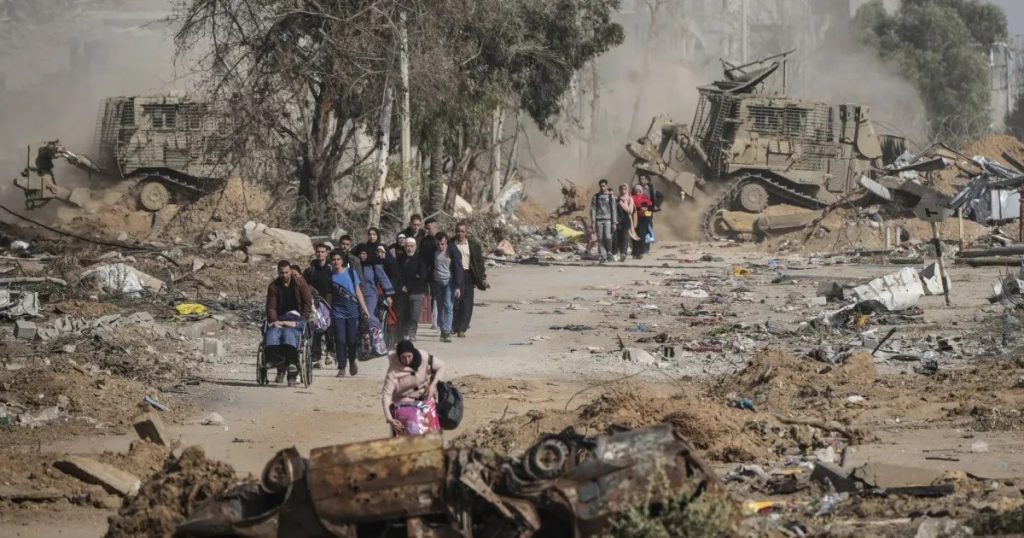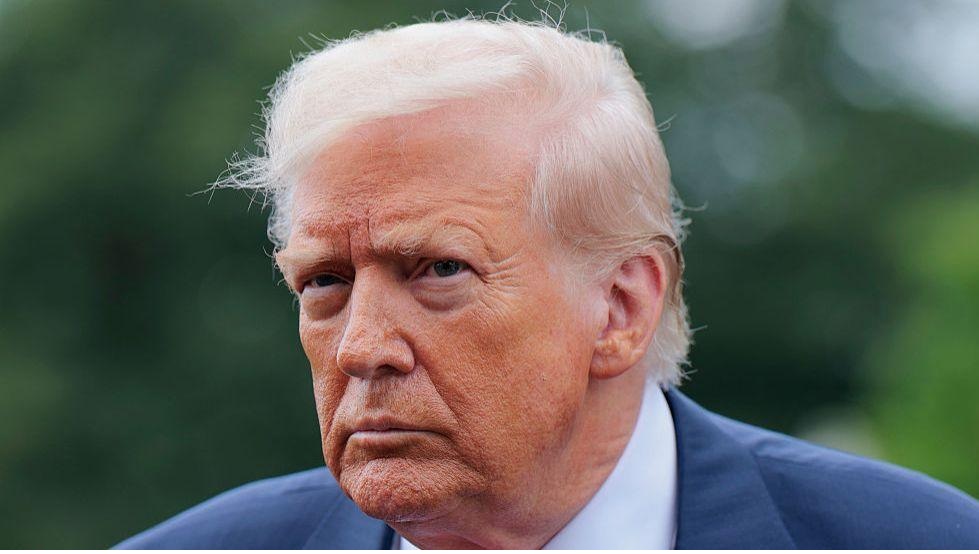News
U.S. Slams France Over Release of Convicted Diplomat Killer

The United States on Saturday, strongly condemned France’s decision to release Georges Ibrahim Abdallah, a Lebanese militant convicted for the 1982 assassinations of two diplomats, an Israeli and an American, in Paris.
Abdallah, who had been incarcerated for over 40 years, was ordered freed by a French appeals court on condition that he immediately leave French soil and never return.
The release took place on July 25, 2025, after decades of legal battles that saw multiple denials of his parole requests largely due to U.S. opposition.
Georges Ibrahim Abdallah was a leading figure of the Lebanese Armed Revolutionary Factions.
This was a Marxist anti-Israel group which the U.S. and the European Union classify as a terrorist organization.
He was apprehended in 1984 and sentenced to life imprisonment in 1987 for his participation in the murders of U.S. military attaché Charles Robert Ray and Israeli diplomat Yacov Barsimantov.
Both men were reportedly killed in Paris, as well as for an attempted assassination of a U.S. consul in Strasbourg. Despite being eligible for parole since 1999,
Abdallah’s release was stalled for decades due to consistent objections from the United States.
The US. considered him a continuing threat to international security and the safety of diplomats.
The United States criticized the French government’s move to release and expel Abdallah, calling it a “grave injustice” to the victims and their families.
A State Department spokesperson asserted that Abdallah’s freedom endangered U.S. diplomats worldwide and that Washington would continue to seek justice.
U.S. officials expressed particular concern that Abdallah’s return to Lebanon could destabilize an already volatile region given the presence of Hezbollah and other armed factions there.
Israeli authorities also strongly condemned the decision.
The Israeli Embassy in Paris issued a statement expressing regret over the appellate court’s ruling.
It described Abdallah as a “terrorist responsible for the murders” and emphasizing that such individuals should spend their lives behind bars.
The wounds inflicted by the killings, including Barsimantov’s assassination which occurred before his wife and daughter, remain raw for the affected families and the diplomatic communities.
From the French judiciary perspective, the Court of Appeal upheld the release based on legal considerations.
Abdallah’s conduct in prison was described as irreproachable, and the court ruled he posed no serious risk of committing new terrorist acts.
Typically, life sentences in France do not guarantee imprisonment until death; inmates are often eligible for release after serving fewer than 30 years.
The court mandated his immediate deportation and permanent ban from French territory, allowing his release to take effect legally on the condition of exile.
Abdallah himself maintains that he is not a criminal but a “fighter” for Palestinian rights, framing his actions as resistance against oppression.
His lawyer celebrated the release as both a judicial victory and a political scandal.
He pointed to the longevity of Abdallah’s imprisonment as exceptional within the context of the Israeli-Palestinian conflict.
Abdallah is now expected to return to his hometown in Lebanon where supporters await him.
The U.S. Department of Justice underscored its long-standing opposition to Abdallah’s release by revealing a letter submitted to the French court shortly before the appeal hearing in December 2024.
The letter warned that sending Abdallah back to Lebanon could provoke severe unrest and threatens regional stability.
Past release attempts in 2003, 2012, 2014, and others were similarly rejected due to these security concerns.
This contentious case highlights the complexity of balancing legal procedures, international diplomacy, security concerns, and political narratives.
France’s decision stands at the intersection of judicial independence and international pressure from allies.
These are especially the United States and Israel, who persistently voiced alarm over Abdallah’s release.
The French court focused on Abdallah’s behavior in custody and statutory parole rights.
On the other hand, the U.S. and Israeli governments view him as a dangerous figure whose freedom could embolden militant activities against their citizens and interests abroad.
In summary, the French release of Georges Ibrahim Abdallah after over four decades in prison for the assassinations of a U.S. and an Israeli diplomat has provoked strong rebuke from the United States and Israel.
This supposedly emphasizes ongoing concerns over diplomatic security and regional stability.
Despite these objections, French authorities have ruled Abdallah poses no immediate threat under current conditions.
They have mandated his deportation from France, underscoring a complex, unresolved chapter in international counterterrorism and justice relations.
For Diaspora Digital Media Updates click on Whatsapp, or Telegram. For eyewitness accounts/ reports/ articles, write to: citizenreports@diasporadigitalmedia.com. Follow us on X (Fomerly Twitter) or Facebook












